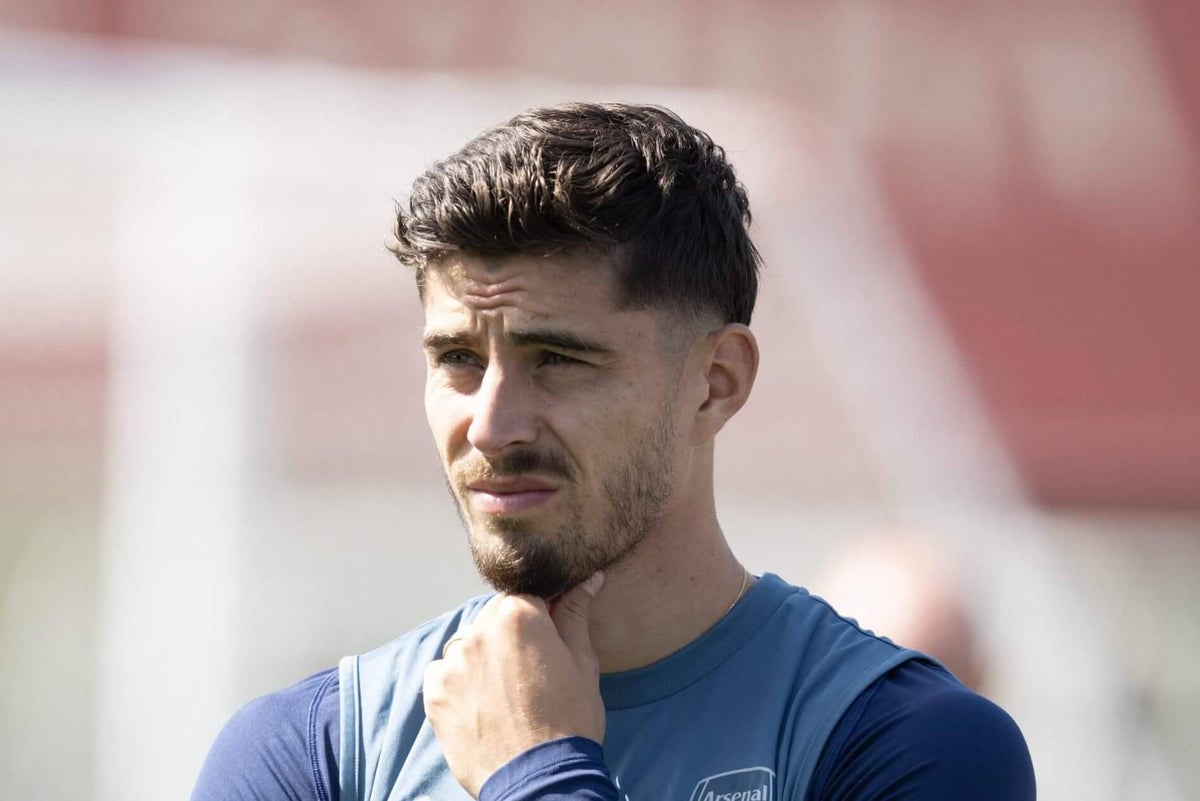Arsenal faces an unexpected challenge as Kai Havertz is set to spend time on the sidelines due to a knee injury. This setback comes at a crucial time, potentially impacting the team’s attacking options and tactical flexibility. The injury forces Arsenal to consider their options in the transfer market while also testing the depth of their current squad.
Havertz’s absence creates uncertainty in Arsenal’s forward line, especially with Gabriel Jesus still recovering from his own injury. Manager Mikel Arteta will need to make strategic decisions to ensure the team maintains its competitive edge in the Premier League and other competitions. This article delves into the implications of Havertz’s injury, exploring Arsenal’s potential responses and the challenges they face.
Kai Havertz’s knee injury was confirmed after he was absent from a recent open training session at the Emirates Stadium. While initial assessments are underway, the exact duration of his absence remains unclear. This is the second significant injury for Havertz in 2025, following a hamstring tear earlier in the year that sidelined him for 18 matches. This latest setback raises concerns about his fitness and availability for the remainder of the season.
According to James McNicholas, Arsenal correspondent, “Despite the signing of Gyokeres, Havertz has remained a big part of Arteta’s plans.” Havertz’s versatility and tactical importance to the team make his absence a considerable blow. The club is now actively exploring options to reinforce their attack, considering both short-term cover and long-term solutions.
In response to Havertz’s injury, Arsenal are actively exploring the transfer market to bolster their attacking options. The club’s management recognizes the need for additional firepower, especially with the uncertainty surrounding Havertz’s return. Potential targets are being evaluated to ensure Arsenal maintains a competitive squad capable of challenging for top honors. The urgency to reinforce the attack underscores the importance of Havertz within Arteta’s tactical framework.
The transfer market activity reflects Arsenal’s commitment to maintaining squad depth and quality. “If Havertz has to undergo surgery, or faces several months on the sidelines, they may have to consider re-entering the market to strengthen their attack,” McNicholas noted, highlighting the potential need for a significant signing. Arsenal’s approach will likely focus on identifying players who can seamlessly integrate into the team and provide immediate impact.
With Havertz sidelined, summer signing Gyokeres faces increased pressure to perform and adapt quickly to the Premier League. The Swedish international is now the primary fit and available striker in Mikel Arteta’s squad. His ability to lead the line and score goals will be crucial for Arsenal’s success in the coming weeks. The team’s reliance on Gyokeres underscores the importance of a smooth transition and consistent performance.
McNicholas points out that “It’s now utterly essential that Gyokeres stays fit, and makes a swift adaptation to life in the Premier League.” Gyokeres’s form will be closely monitored as he aims to fill the void left by Havertz. The striker’s performance could significantly influence Arsenal’s tactical approach and overall competitiveness.
Besides Gyokeres, Arsenal has alternative attacking options in the squad, including Merino and Leandro Trossard. Both players have previously featured in the center-forward position, providing Arteta with tactical flexibility. Their ability to step up and contribute will be essential in mitigating the impact of Havertz’s absence. These players offer different skill sets and playing styles, allowing Arsenal to adapt their approach based on the opponent and game situation.
However, McNicholas suggests that relying solely on these alternatives may not be ideal: “Currently, Merino and Trossard would be the Sweden international’s immediate back-ups.” The potential limitations of these options highlight the need for Arsenal to explore additional reinforcements in the transfer market.
Havertz’s injury could significantly impact Arsenal’s plans for the season, both in the Premier League and in other competitions. His absence reduces the team’s tactical flexibility and overall squad depth. Arteta will need to reassess his strategies and potentially adjust the team’s approach. The injury also places added pressure on other key players to perform consistently and avoid further setbacks.
The situation underscores the unpredictable nature of football and the importance of having a well-rounded squad. Arsenal’s ability to navigate this challenge will be a key indicator of their resilience and ambition for the season.
Kai Havertz’s knee injury presents Arsenal with a significant challenge, forcing the club to explore transfer market options and rely on existing squad depth. The injury’s impact on Arsenal’s attacking options and tactical flexibility cannot be understated. The team’s response to this setback will be crucial in determining their success in the Premier League and other competitions. Arsenal’s ability to adapt and overcome this adversity will be a key factor in their pursuit of silverware.
The situation highlights the importance of squad depth and the unpredictable nature of football. As Arsenal navigates this challenge, the focus will be on finding solutions that maintain their competitive edge and allow them to achieve their season objectives.

Leave a Reply